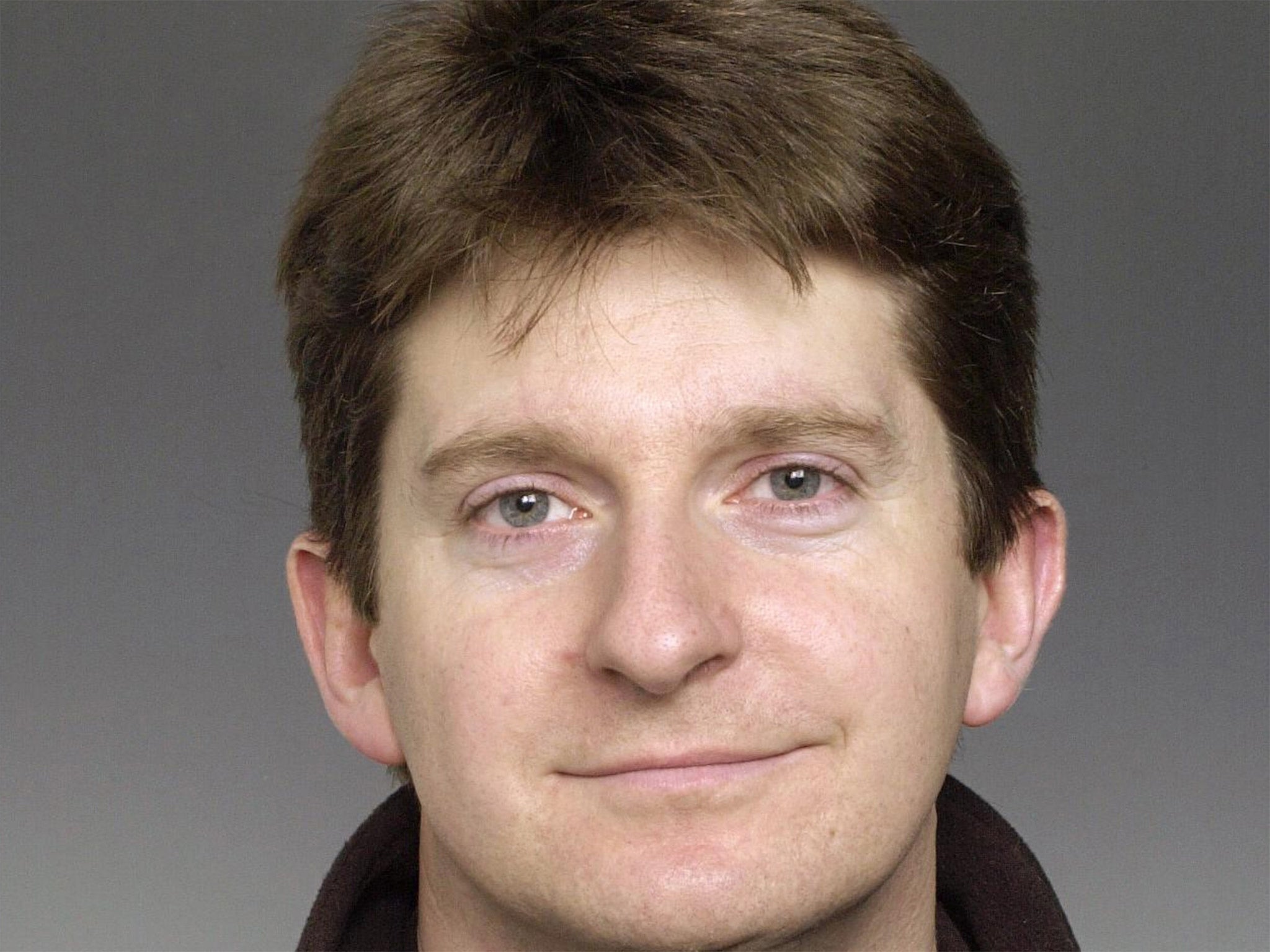Family of BBC cameraman murdered in Saudi terror attack regret killer's death sentence
Simon Cumbers died while filming near Riyadh in 2004

Your support helps us to tell the story
From reproductive rights to climate change to Big Tech, The Independent is on the ground when the story is developing. Whether it's investigating the financials of Elon Musk's pro-Trump PAC or producing our latest documentary, 'The A Word', which shines a light on the American women fighting for reproductive rights, we know how important it is to parse out the facts from the messaging.
At such a critical moment in US history, we need reporters on the ground. Your donation allows us to keep sending journalists to speak to both sides of the story.
The Independent is trusted by Americans across the entire political spectrum. And unlike many other quality news outlets, we choose not to lock Americans out of our reporting and analysis with paywalls. We believe quality journalism should be available to everyone, paid for by those who can afford it.
Your support makes all the difference.The family of a BBC cameraman who was shot dead in a terrorist attack in Saudi Arabia 10 years ago have spoken of their regret over his killer’s death sentence, saying the condemned man’s parents “must now suffer that tremendous loss that we feel”.
Simon Cumbers, an Irish national, was murdered while filming a news item about al-Qaeda near Riyadh in June 2004. The BBC’s security correspondent, Frank Gardner, was also severely injured in the attack.
Mr Cumbers’ killer, Adil Sa’ad Al-Dubayti Al Mutayri, has now been convicted of murder and of declaring war against the state. On Monday a court in Saudi Arabia sentenced him to death alongside two other defendants.
The cameraman’s parents, Robert and Bronagh, from Navan in County Meath, have previously called on the Saudi Arabian authorities not to execute their son’s killer.
“Simon was a pacifist, someone who would not have wanted the death penalty and would have opposed it. We do not want this man to be executed if he is found guilty,” Mr Cumbers said in 2009.
In a statement issued to Irish broadcaster RTÉ after the court announced its decision, he said the family’s view had not changed: “I have mixed feelings about the sentencing. On the one hand, I am pleased that the murderer has had his fate decided and that the long wait is over.
“It won’t bring Simon back, but it puts an end to the waiting. On the other hand, both Bronagh and I sympathise with Dubayti’s [the sentenced man] parents, who must now suffer that tremendous loss that we feel.”
As well as being convicted of shooting the BBC crew, the men were accused of multiple murders in separate attacks in Riyadh and Alkhobar over a long period. The sentences, which are subject to appeal, were also criticised by Amnesty International, which condemns the death penalty in all cases.
Tim Hancock, the director of policy at Amnesty UK, said: “Amnesty of course opposes the death penalty in all cases, regardless of the circumstances. It is the ultimate inhuman act.
“Saudi Arabia executes a lot of people; 79 last year. They have embarked on a killing spree in 2014, at one point over the summer executing at a rate of more than one person every day.
“This crime is an appalling one, shooting journalists going about their work is an abhorrent act of cowardice, but killing, even killing a killer, is never right.”
Mr Cumbers had previously worked for both ITN and Channel 4 and also set up his own production company with his wife Louise. Mr Gardner suffered life-changing injuries in the attack and now relies on a wheelchair.
In his 2007 book Blood and Sand, in which he recounts his experience of being shot and left for dead, the BBC correspondent described Mr Cumbers as a man of “endless patience and good humour” who had a “kind and big-hearted family”.
“There were others at the BBC who knew Simon much better than I did, but he was one of those rare people with such natural charisma you only had to be with him for five minutes and you felt you had known him a lifetime,” Mr Gardner wrote.
Recalling the memorial service for his colleague held at Fleet Street’s St Bride’s Church, he wrote: “After all my months in hospital it finally hit home hard: Simon was dead, because of the trip we had gone on together. I had survived and he had not. I would have given anything to wake up and realize it had just been a terrible dream, that Simon was still doing what he loved, making superb films or just making everyone around him smile and laugh.”
Join our commenting forum
Join thought-provoking conversations, follow other Independent readers and see their replies
Comments